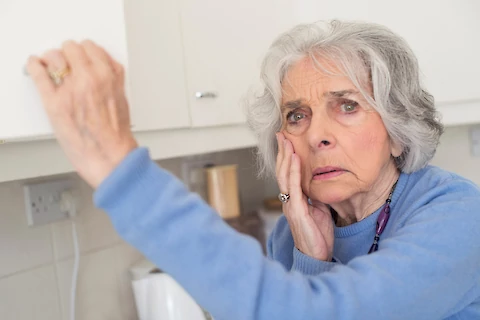
Dementia, including Alzheimer's, is a concerning health issue for most of us as we age. Recognizing the early signs is crucial for proper intervention and care. That's why this blog post is here to help you identify any early Alzheimer's symptoms that you may be experiencing yourself.
Remember, it's essential to visit a doctor to learn more about your cognitive challenges (there is no method to diagnose dementia). This guide is meant to inform and reassure you, rather than increase your worry. We're here to offer support and tips on what to look out for, so you can take charge of your health and well-being.
Early Signs of Dementia
One of the earliest signs of dementia is memory loss which significantly disrupts daily life. This can manifest as forgetting important dates or events, asking for the same information repeatedly, and increasingly relying on memory aids or family members for things you used to handle independently.
Another sign is experiencing challenges in planning or solving problems. You might find difficulty following a plan, working with numbers, or concentrating on tasks that once were simple. Taking much longer to complete familiar tasks is a red flag.
Speaking of familiar tasks, dementia can cause difficulties in carrying them out, even if they were once second nature to you. Struggling to manage a budget, cook a meal, or remember the rules of a favorite game can be early signs of cognitive decline. Additionally, confusion with driving to familiar locations could indicate an issue.
Dementia can also lead to confusion about time or place. If you find yourself losing track of dates, seasons, and the passage of time, or forgetting where you are or how you got there, it might be a sign of a developing problem.
Visual and spatial relationship challenges are another sign to watch for. Difficulty reading, judging distance, or determining color or contrast could indicate dementia. It's important to rule out other eye conditions, but this vision change can be a warning sign.
Communication problems, such as new issues with speaking or writing, are another early indicator. You may struggle to join or follow a conversation, repeat yourself frequently, or have trouble finding the right vocabulary.
When experiencing dementia, you might also start misplacing things and struggle to retrace your steps. This could lead to putting items in unusual places, and not being able to find them later. You may even accuse others of stealing, due to the inability to locate misplaced items.
Decreased or poor judgment is another sign of dementia. This can manifest as changes in decision-making ability, poor financial choices, or neglecting personal hygiene.
Withdrawal from work or social activities can be linked to dementia as well. You may find yourself avoiding hobbies, social events, or work projects due to the cognitive changes you're experiencing. Feeling embarrassed or overwhelmed by these difficulties is common, leading to further isolation.
Finally, changes in mood and personality can be red flags for dementia. Becoming confused, suspicious, depressed, fearful, or anxious are all potential indicators. You may become easily upset when out of your comfort zone.
What to Do if You're Experiencing These Signs
If you notice any of these symptoms in yourself, schedule an appointment with a healthcare professional. Keeping a journal of your symptoms and concerns can also be helpful to discuss with your doctor. Don't hesitate to seek support from your family and friends, and stay informed about local Alzheimer's and dementia resources.
Turn to Senior Helpers for Support
For those living in Tampa, Hillsborough County, Lutz, and Odessa, Senior Helpers Tampa is here to assist seniors experiencing dementia as well as their families. Contact us today to learn more about our in-home care and companionship services and how we can help you or a loved one navigate this journey.